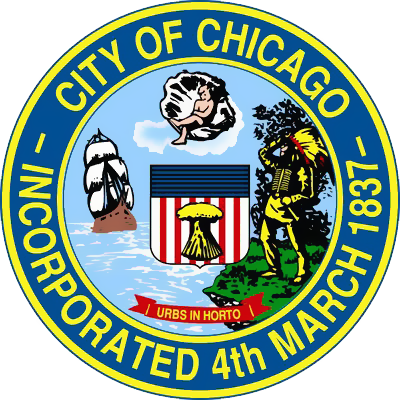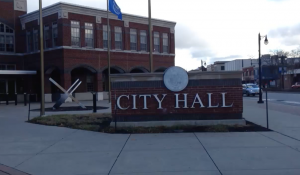After voting to approve $3.765 million to settle lawsuits with two victims of police misconduct, two Chicago aldermen called for more council oversight of the police and stressed the need for proper discipline and tracking of offending officers.
“The city council needs to be overlooking what our police officers are doing,” Ald. Robert Fioretti (2nd) said after Wednesday’s Chicago City Council meeting.
At the occasion, Ald. Jason C. Ervin (28th) called disciplining and tracking misconduct by police officers a “risk management issue,” and he said the city has a responsibility to protect residents from police misconduct and taxpayers from the financial liability that results.
City attorney Leslie Darling presented the two settlements to the Committee on Finance on Tuesday, one for $1.365 million in a case involving a bystander hurt during an unauthorized police chase and the other for $3.4 million for a man who spent eight years in prison for a crime he did not commit.
William Kurtz was permanently injured in 2009 when he was hit by a car being chased by Chicago police.
Darling said two officers were chasing a suspected drunk driver on South Kedzie Avenue when the driver, Pablo Mendoza, hit Kurtz, who was on his way home from a wedding. Kurtz was injured in the leg and had to undergo multiple surgeries, he can no longer walk more than a block-and-a-half without pain, and his foot may eventually need to be amputated.
The police officers were ordered to stop their chase of Mendoza before the crash, but they did not hear the order because they were listening to “commercial radio,” and were not tuned in to the dispatch radio, Darling said. She added that the chase did not meet the police department’s standards for a high-speed chase because it was only due to a possible traffic violation.
The two officers involved were reprimanded and given retraining. Darling said further discipline is being considered but she refused to give details.
Mendoza fled while out on bail and is still missing.
At the Finance Committee meeting Ervin asked Darling about the disciplining of the officers and suggested there needs to be more coordination between the law department and the police in disciplining and tracking problem officers.
On Wednesday, Ervin said the council “definitely” has a role to play in watching over the police department.
“We just want to make sure that these officers who are causing a financial liability to the citizens of the city of Chicago are looked into and that they’re adequately disciplined,” he said.
Chicago Law Department Spokesman Roderick Drew said the two departments cooperate frequently and “there are instances where the discipline of a police officer is based on the outcome of a criminal or civil action.”
The second settlement went to Maurice Patterson who was convicted of the 2002 stabbing death of Robert Head and spent more than eight years in prison before he was released in 2011.
During Patterson’s trial prosecutors insisted that a knife found near the scene of the stabbing was not the murder weapon, but a state open records request Patterson filed from prison revealed that the knife was covered in the blood of the victim and the blood of a convicted felon who lived three blocks from the incident.
Twelve hours after the murder, that convicted felon went to a hospital emergency room with a stab wound and left when he found out police were coming to question him.
Darling said even though Patterson’s attorneys had asked about the knife and DNA before his trial, the state’s attorney did not turn over the evidence. Chicago police claimed they never received the DNA test results from the Illinois State Police crime lab, but Darling said records from the state police indicate that they had.
When the DNA evidence from his request came to light, all charges against Patterson were dropped and he was freed. The felon whose blood was on the knife has still not been charged with the crime.
In addition to the $3.4 million from Chicago, the Illinois State Police have agreed to pay Patterson $800,000.
Ald. Fioretti said it isn’t enough.
“How much is it for somebody wrongfully convicted, who spends several years in jail, that we give basically a half-a-million a year?” Fioretti asked. “Was that a fair amount? I don’t think so.”
Ald. Richard Mell (33rd) agreed with Fioretti and at the committee meeting said he thought if the lawsuit had gone to court the city would have had to pay much more.
Fioretti stressed that he did not place the blame with the Chicago police officers, and questioned whether the state police had ever actually sent the DNA evidence. He also worried about the consequences of the stress and pressure placed on an undermanned police force.
“I will stand up for our police department. We are undermanned, we’ve got the highest murder rate ever going on right now, we’ve got the highest bank robberies, highest auto thefts, and our police officers, all they’re doing is just responding to calls and half the time they don’t even have enough time to attend to the calls. So we have to be very careful,” Fioretti said. “I definitely think there should be more oversight.”
But the problem does not lie in policy or legislation, but in the disinterest of his fellow aldermen, he said.
“This council, half the time they don’t even show up to meetings. They don’t show up at police and fire,” Fioretti said. “I’d say about two-thirds aren’t active.”
Related articles
 City Council Votes To Approve $1.9 Million To Settle Police Cases(chicagotalks.org)
City Council Votes To Approve $1.9 Million To Settle Police Cases(chicagotalks.org)
 Chicago Police Officer Faces Charges For Taking $5,000 Bribe(chicagoist.com)
Chicago Police Officer Faces Charges For Taking $5,000 Bribe(chicagoist.com)













Be First to Comment